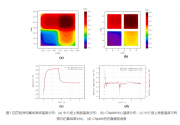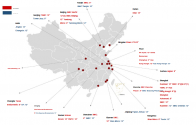Recently, Puya Semiconductor's automotive-grade EEPROM series products have passed the AEC-Q100 Grade1 automotive-grade high-reliability certification of SGS, an internationally recognized testing, inspection and certification organization. Tong Hongliang, deputy general manager of Pura Semiconductor, Xu Chuangge, senior manager of SGS China Semiconductor and Reliability, and other important guests attended the certificate awarding ceremony. This certification marks that the efforts made by Puya Semiconductor in terms of automotive products have been recognized and affirmed by an international authoritative third-party organization.
AEC-Q100 is a reliability testing standard for automotive electronic components formulated by the Global Automotive Electronics Association. It is an important guideline for parts suppliers in the automotive industry and has a high authority in the global automotive industry. As one of the important members of the AEC (Automotive Electronics Council) Automotive Electronics Committee, SGS has been involved in the testing and certification of automotive electronics products for many years, and has joined AEC-Q100, Q101, Q102, Q103, and Q200 subcommittees to participate in the standard formulation work. With professional technology, rich experience, complete equipment and high-quality service, SGS Semiconductor and Reliability Laboratory has become a professional testing laboratory in China, and has been recognized by China National Accreditation Service for Conformity Assessment (CNAS) and many customers. recognized.
In recent years, the automotive electronic and electrical architecture is rapidly evolving from distributed to domain fusion and centralized control. At the same time, driven by the "new four modernizations" trends of electrification, networking, intelligence, and sharing, memory chips carrying data storage and transmission are becoming an increasingly important part of the development of automotive intelligence. Demand is constantly being released.
According to third-party statistics, NOR Flash downstream automotive electronics has a global market capacity of 1 billion US dollars, and EEPROM has a space of 100 million US dollars, and both have maintained continuous growth.
The automotive NOR Flash application market generally covers a capacity range from 512Kbit to 2Gbit, while EEPROM generally covers a range from 2Kbit to 2Mbit. It is mainly used in ADAS, body control, radar, camera, display, wireless/Bluetooth connection, navigation, BMS and other fields.


